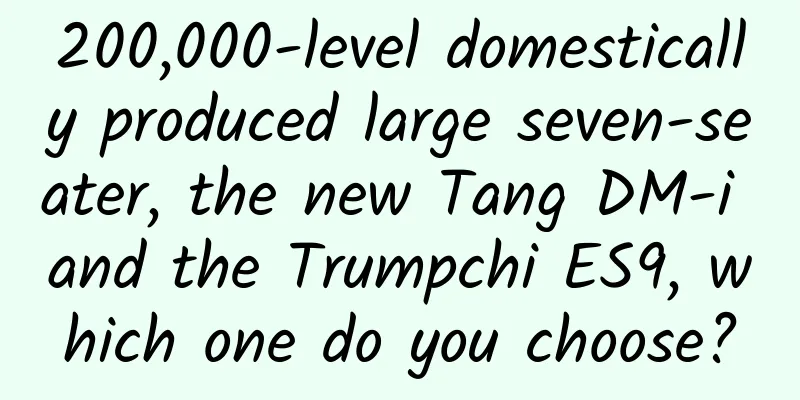From campus diaries to default check boxes, why is Ant Financial always tricked by itself?

|
At 23:34 on the evening of January 3, Sesame Credit, a subsidiary of Ant Financial, issued an apology statement on Weibo: "The original intention was not wrong, but the method used was very stupid, extremely foolish." It refers to the fact that when users check their Alipay annual bills, they agree to the Sesame Service Agreement by default. Alipay later forwarded the message: "I don't know what to say either, let's bear the consequences together." In its words, Alipay seemed quite helpless about its "pig teammate" Sesame Credit, because the latter turned an originally joyful national sharing event into a public relations crisis. I believe everyone already knows the whole process of the incident. On January 3, WeChat Moments was flooded with Alipay’s 2017 annual bill and 2018 annual keywords. When everyone was immersed in it, Yue Shanshan, who was certified on Weibo as “Partner of Yuecheng Law Firm, CCTV Legal Expert”, posted a Weibo post pointing out some problems in this bill-sharing activity: This practice of making choices for users is obviously inappropriate and stupid, and the font size is so small that it feels sneaky. Many people said that they didn't even notice the small text on the opening screen of the H5 page and just swiped past it. This incident quickly fermented, so it presented such a strange spectacle - on the morning of January 3, everyone was frantically posting their Alipay annual bills on WeChat Moments, and in the evening, everyone began to forward related reports titled "Urgent! Before checking your Alipay annual bill, please read this first." It was a quite dramatic scene. Seeing that public opinion was about to get out of control, Zhima Credit issued an urgent statement on the evening of January 3rd, with an extremely sincere attitude: "It is definitely wrong for users to check the 'I agree to the Zhima Service Agreement' by default when checking their Alipay annual bills. Originally, we hoped to fully respect the user's right to know and let the user know that the Alipay annual bill can only display his credit exemption content with his consent. The original intention was not wrong, but the method used was very stupid and stupid." Sesame Credit also stated that user information security and privacy are its lifeline. It will ensure that users are informed and agree, not collect excessive data, and will never abuse data. It apologized again: "We deeply apologize to everyone for the panic and misunderstanding caused by this incident, and we also deeply apologize to the annual billing team for causing trouble for everyone." It also made a remedy: "You can find the "Alipay" option in [Alipay Client-My-Zhima Credit-Credit Management-Authorization Management] and cancel the authorization." On the evening of January 3, Chen Liang, vice president of Ant Financial, told Huxiu: "We will immediately start a review of the entire incident." So where did the problem lie in this incident? Chen Liang said: "Let's take responsibility together. We will not push the responsibility onto one person. Any problem is our team's problem." But Chen Liang also repeatedly emphasized to Huxiu that although both are subsidiaries of Ant Financial, Alipay and Sesame Credit are two different companies. Alipay really cannot be blamed this time. It is a problem of Sesame Credit, so it is Sesame Credit that should apologize, not Alipay. "I'm not saying that the Alipay team has no responsibility, I just ignored the main role." Chen Liang spoke up for the Alipay team, saying, "You can't put the blame on Alipay for everything. It's a burden that they can't bear." But netizens don’t care about all this. They will naturally think that this is an activity organized by Alipay, and you have "agreed" on behalf of users in the "Sesame Service Agreement" on the homepage, and this is your problem. When asked why such an option appeared on the H5 homepage, Chen Liang told Huxiu that there was no such agreement and button during the initial review, "It was added later at the request of the legal department, so the announcement said 'very stupid'." But he was also somewhat helpless, "Based on the principle of data independence, this agreement is indeed necessary." Therefore, the problem that can be seen at a glance in the whole incident is that when designing this button, the staff deliberately made the font very obscure, and at the same time, they helped users choose the "Agree" button out of arbitrariness. If the choice was given to the user, there might not be this crisis. A typical case of being too clever and suffering a great loss. After reading the entire agreement, Lin Hua, author of Huxiu and legal director of Hujiang.com, interpreted it clause by clause. He believes that there are no major problems with the agreement as a whole, but there may be problems with some minor details, such as the clause in the agreement that "if the service cannot be provided normally... we will not bear the losses." He believes that this unilateral reduction of one party's own responsibility is an unreasonable clause. "The problems I've seen with these clauses are not really big. Legally speaking, unreasonable clauses are useless even if they are agreed upon, and you can always ask the court to declare them invalid or revocable." Lin Hua explained to Huxiu, "But if you look at the conditions below, they are all force majeure, so considering the following content, this is reasonable." "I also saw some experts say that Zhima should highlight the warning in the agreement. However, the problem is that even if half of the agreement is nonsense, the other half is all content that affects the rights of users. But if half of it is highlighted, the effect is almost the same as no warning. So this is where the conflict between legal provisions and real life lies." Lin Hua said, "In fact, I have not found any major mistakes or loopholes in Alibaba's user agreement over the years. Alibaba is more standardized than most of its peers." But he also expressed the same view that the bill viewing incident could have been done better this time and give the choice to users. In addition, the big stick of supervision has always been hanging high. The Cybersecurity Law, which was promulgated on June 1, 2017, and the Interpretation of the Supreme People's Court and the Supreme People's Procuratorate on Several Issues Concerning the Application of Law in Handling Criminal Cases of Infringement of Citizens' Personal Information, were promulgated and implemented at the same time. They clearly explained the acts of infringing citizens' personal information and the applicable laws, and strengthened the regulations on network operators in collecting and using personal information, including requiring explicit authorization from users, not general authorization, and clearly disclosing the purpose, scope of application, and time limit of information, and taking measures to ensure the security of personal information. Ant Financial's behavior clearly seems to be in defiance of the law. To put it bluntly, Ant Financial may also be worried that releasing these user consumption behavior data will involve some user privacy issues (otherwise the legal department would not intervene so strongly), but their product was a little clever, with a disclaimer, and then a little clever again, helping users agree. A slight difference in thought can lead to a huge mistake. Therefore, product managers of Internet companies must not be clever. An industry insider commented: "I feel that Ant Financial lacks sensitivity in its work processes, or fails to estimate the severity of possible problems. Overall, it gives people a sense of numbness." This incident happened only 13 months after Peng Lei wrote her heart-wrenching apology letter. At that time, Peng Lei cried out: "We have always taken care of Alipay as if it were our own life, but today it has been given all kinds of stigmas. How can we bear to see this??!!" The turmoil in the Alipay circle at that time triggered people's moral judgment on this Internet payment tool. On November 24, 2016, Alipay, which was eager to become a social platform, launched the "circle" function on its homepage Newsfeed. In particular, in circles such as "White Collar Diary" and "Campus Diary", only female users can post pictures to attract likes, comments and rewards. Male users with a Sesame Credit score of at least 750 can comment, and those with a score below 750 can only like. Even more serious than "Sesame Credit discrimination" is that many large-scale photos of women soon appeared in these two circles, which subsequently caused an uproar on the Internet. The Circle incident quickly fermented and got out of control in just a few days. On November 29, Peng Lei, who was on a business trip in the United States at the time, decisively stepped forward to respond. In the internal letter titled "Wrong is Wrong", Peng Lei said: "The past two days have been the saddest moments in my seven years at Alipay. We have experienced many difficult times, but nothing has hurt me as deeply as this time." Hurt by this, Peng Lei questioned Ant Financial’s internal staff: “Can we do whatever we want to increase user activity?!” “Why did we choose this type of circle? What kind of user value and wonderful experience does it create?! Do people really need to be naked in this way??!! We need to constantly question ourselves with questions like these. Anyone who tries to deceive himself is only digging his own grave.” The incident ended with the closure of the circle and the dismissal of the head of the Alipay circle team, but it became a landmark event that people cannot ignore when looking back on the history of Alipay, and it will always sting. As Tiger Sniff author Chong Er analyzed in an article: "This is the product's gene, and marketing and operations cannot be blamed. Wanting to stand out but being cautious is the embarrassment of product marketing. The overflow and lack of presence both mean huge risks. Marketing is increasingly like a game with an exciting process and unknown results." The circle incident and this time's bill-sharing incident have one thing in common, that is: both Alipay and Sesame Credit were involved. As a financial service product, Alipay has survived many hardships. During the most difficult times more than 10 years ago, Jack Ma even said that he could hand over Alipay to the country at any time. At present, Alipay is a super app with more than 520 million users. As an independent payment tool, it has gained "bank-level trust". It is also different from WeChat Pay. WeChat Pay is just a function in WeChat, while Alipay is an independent third-party payment tool. However, Ant Financial has repeatedly used such an Internet financial tool to make various bold and exciting attempts to challenge users' trust. Take the example of posting annual bills. Have you ever seen a bank posting various bills for you? Would you post your bank card account number to others? As for the promotion of Sesame Credit, in the past 2017, Alipay worked hard to promote credit-based deposit-free riding, especially the credit-based deposit-free riding shared bicycles promoted by ofo and Yonganxing, which received wide acclaim and effectively avoided the problem of non-refundable deposits when shared bicycles such as Xiaolan Bicycle died. Later, this credit-based deposit-free riding was also extended to application scenarios such as staying in hotels and renting houses without deposit. In August 2017, WeChat launched Tencent Credit Score following Alipay. The usage scenarios basically continued those of Sesame Credit, such as the pilot of Mobike's deposit-free riding in Guangzhou and the promotion of deposit-free rental in Shenzhen in cooperation with the Shenzhen Municipal Housing and Urban-Rural Development Department. In the future, credit-free deposit will inevitably become the infrastructure for Internet giants, especially Alibaba and Tencent, to connect various consumption scenarios in the field of Internet finance. In this case, Alipay or Sesame Credit should prevent problems from happening when planning various marketing activities and avoid excessive marketing. Have you seen any bill-sharing activities on WeChat? No. You have to know that with the size of Alibaba and Ant Financial, how many eyes are waiting for it to make a mistake? The competition between AT and AT has already intensified in the second half of 2017, especially reaching a climax at the Wuzhen dinner. You can imagine that there are definitely many more people paying attention to Alipay than to 360. Its competitors are looking at it with a microscope, and they will immediately find out if you make a mistake. In this case, you must not commit suicide. Jack Ma once said that what is valuable in Alibaba is the courage to correct mistakes. But you can’t always apologize sincerely after making a mistake and expect users to forgive you as if nothing happened. Repeatedly experimenting with Alipay is irresponsible to the “child” you have worked so hard to raise. The most crucial thing is that there have been rumors that Ant Financial is going to have an IPO. After the listing, any wrong behavior will be inappropriate and catastrophic, and will become a bomb that destroys the stock price. The behavior of Ant Financial's product manager, who wants to poke a hole in the sky, makes us worry about its future after the listing. Some lawyers have already stated that Sesame Credit's behavior would be considered a major violation of consumers' personal privacy information in the United States or Hong Kong, and would easily be heavily fined by regulators. Jack Ma has always said, "Every company must understand what I have, what I want, and what I am willing to give up." Otherwise, it may, as Peng Lei said, "self-righteously run further and further down the wrong path." Therefore, Ant Financial should just shut up. Do you still want Peng Lei to apologize on your behalf again? As a winner of Toutiao's Qingyun Plan and Baijiahao's Bai+ Plan, the 2019 Baidu Digital Author of the Year, the Baijiahao's Most Popular Author in the Technology Field, the 2019 Sogou Technology and Culture Author, and the 2021 Baijiahao Quarterly Influential Creator, he has won many awards, including the 2013 Sohu Best Industry Media Person, the 2015 China New Media Entrepreneurship Competition Beijing Third Place, the 2015 Guangmang Experience Award, the 2015 China New Media Entrepreneurship Competition Finals Third Place, and the 2018 Baidu Dynamic Annual Powerful Celebrity. |
Recommend
Live streaming car sales gone astray: 4S stores turned into talent shows, making anchors popular but car dealers suffering
A few years ago, live streaming became popular, a...
Apple Internet TV requires TV stations to stream their own videos
In its cooperation with Hollywood and the music i...
How can Douyin individual business owners authenticate the corporate Blue V? How to enter Douyin as a self-employed person!
Today, the hot trend of Douyin has continued. Reg...
What are the functions of Foshan Psychological Counseling WeChat Mini Program? How to make WeChat psychological test mini program?
Nowadays, with the continuous improvement of peop...
Spain launches first commercial rocket to join space club
Recently, Spain, which is rarely heard of in the ...
How did "The BFG" that Spielberg had no interest in finally make a comeback?
Recently, the topic of Steven Spielberg in China ...
Bidding advertising products: Product strategy for search advertising
Bidding advertising products: product strategies ...
On the highest realm of operation work - emotional operation
I have mentioned this point many times in my prev...
WeChat officially responded to when to launch the "clean fans" function: the decision is left to the users and there will be no such function in the future
Added but never spoke, this is a true reflection ...
Water celery or poison hemlock? Don't pick wild vegetables on the roadside
As spring arrives and the temperature rises, many...
4 steps to make users addicted to your product instantly!
How to make users addicted to you? Why do users k...
Hua Luogeng: There is a way to become a self-taught person
November 12th is the 111th birthday of Hua Luogen...
What happens when you flush the toilet?
© The Independent Leviathan Press: The toilets we...
In winter, besides dirt, there is also this...
Source: Youlai Healthy Life...
Get Metaverse Course, Luo Zhenyu's 6 Metaverse Courses Baidu Cloud Download
Facebook's announcement of changing its name ...









